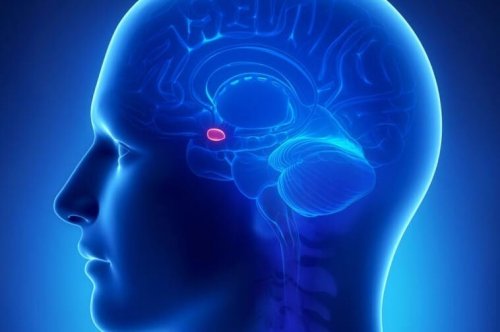How Generosity Affects the Brain

In general, being generous is a pleasant experience. In fact, one of the main reasons why people are generous with others is that it feels good. Experts call it the “warm glow” effect. Recent research has taken a closer look at how generosity affects the brain and your health.
A study in Nature Communications magazine, for example, not only confirmed that generosity makes you happier but was able to identify the areas of the brain involved in generous acts.
Does it matter who you’re being generous to? Is there any difference between helping someone close to you and someone you don’t know? Can different types of generosity improve your health?
A new study from researchers at the University of Pittsburgh in Pennsylvania identified different types of generosity for the first time. They also analyzed the effects that different kinds of generosity have on the brain. The results were published in Psychosomatic Medicine: Journal of Biobehavioral Medicine.
Targeted and untargeted support
Researchers differentiated between two kinds of generosity: targeted support and untargeted support. Giving targeted support means helping someone directly, such as lending money to a friend or family member. Untargeted support is when you help a cause of some kind, such as donating to charity.

According to this study, providing targeted support to people in need activates the areas of the brain that are also involved in parental care. Untargeted support, on the other hand, doesn’t have the same neurobiological effects.
These findings could help scientists understand the positive health effects of social bonds. The researchers argue that these results highlight the unique benefits of giving targeted support and reveal the neural channels through which generosity leads to health.
Generosity reduces activity in the amygdala
Researchers also conducted a few experiments to evaluate mental responses to giving different kinds of social support.
In the first study, 45 volunteers had the opportunity to give support to someone who needed money (specific or targeted support), to charity (untargeted support) or to themselves. Just as the researchers suspected, the participants who gave targeted social support felt more socially connected and that their generosity was more effective.
Later, subjects did an emotional faces task in a functional magnetic resonance image scanner to identify the activation of specific areas of the brain during generous acts (targeted). Providing support, independently of who received the support, resulted in greater activation in the ventral striatum and the septal area. Scientists also associate these two areas with parental care in animals.
However, higher activation in the septal area during targeted support was also associated with a reduction in activity in the amygdala. The amygdala is the part of the brain that regulates fear and stress responses.
In the second study, 382 participants shared information about their giving support behavior (prosocial behavior) and did an emotional faces task in the functional MRI scanner. Once again, those who had provided the most specific support had reduced activity in the amygdala.
Untargeted support didn’t affect activity in the amygdala in either study.

Targeted generosity affects the brain in unique ways
The results suggest that providing targeted support has the unique effect of reducing anxiety and stress. The authors of the study argue that humans prosper from social connections and benefit from working towards others’ well-being.
In an earlier study, the same researchers discovered that being generous to others has positive effects in the areas of the brain related to stress and reward responses. That study suggests that being generous can benefit your physical and mental health.
This new study adds additional evidence of the benefits of generosity on the brain. Both targeted and untargeted support are associated with increased activity in the septal area. This supports the “warm glow” theory that we mentioned above. Helping others, directly or indirectly, simply makes you feel good.
A new neural pathway: targeted generosity improves your health
The researchers also argue that the link between increased septal area activation and decreased amygdala activity suggests a neural pathway. They concluded that “results highlight the unique benefits of giving targeted support and elucidate neural pathways by which giving support may lead to health”.
The study also points out that they weren’t able to identify the cause and effect of providing support for the septal and amygdala area activation. They also say that giving targeted social support doesn’t always lead to better health. For example, being a long-term caregiver for a sick family member can be bad for your health.
In conclusion, this study adds to prior evidence that generosity affects your brain in positive ways. Giving social support is an often-overlooked factor in the connection between social relationships and health. The researchers concluded that giving specific support to an identifiable person in need is uniquely associated with reduced activity in the amygdala. That contributes to our understanding of how and when giving support can lead to good health.
In general, being generous is a pleasant experience. In fact, one of the main reasons why people are generous with others is that it feels good. Experts call it the “warm glow” effect. Recent research has taken a closer look at how generosity affects the brain and your health.
A study in Nature Communications magazine, for example, not only confirmed that generosity makes you happier but was able to identify the areas of the brain involved in generous acts.
Does it matter who you’re being generous to? Is there any difference between helping someone close to you and someone you don’t know? Can different types of generosity improve your health?
A new study from researchers at the University of Pittsburgh in Pennsylvania identified different types of generosity for the first time. They also analyzed the effects that different kinds of generosity have on the brain. The results were published in Psychosomatic Medicine: Journal of Biobehavioral Medicine.
Targeted and untargeted support
Researchers differentiated between two kinds of generosity: targeted support and untargeted support. Giving targeted support means helping someone directly, such as lending money to a friend or family member. Untargeted support is when you help a cause of some kind, such as donating to charity.

According to this study, providing targeted support to people in need activates the areas of the brain that are also involved in parental care. Untargeted support, on the other hand, doesn’t have the same neurobiological effects.
These findings could help scientists understand the positive health effects of social bonds. The researchers argue that these results highlight the unique benefits of giving targeted support and reveal the neural channels through which generosity leads to health.
Generosity reduces activity in the amygdala
Researchers also conducted a few experiments to evaluate mental responses to giving different kinds of social support.
In the first study, 45 volunteers had the opportunity to give support to someone who needed money (specific or targeted support), to charity (untargeted support) or to themselves. Just as the researchers suspected, the participants who gave targeted social support felt more socially connected and that their generosity was more effective.
Later, subjects did an emotional faces task in a functional magnetic resonance image scanner to identify the activation of specific areas of the brain during generous acts (targeted). Providing support, independently of who received the support, resulted in greater activation in the ventral striatum and the septal area. Scientists also associate these two areas with parental care in animals.
However, higher activation in the septal area during targeted support was also associated with a reduction in activity in the amygdala. The amygdala is the part of the brain that regulates fear and stress responses.
In the second study, 382 participants shared information about their giving support behavior (prosocial behavior) and did an emotional faces task in the functional MRI scanner. Once again, those who had provided the most specific support had reduced activity in the amygdala.
Untargeted support didn’t affect activity in the amygdala in either study.

Targeted generosity affects the brain in unique ways
The results suggest that providing targeted support has the unique effect of reducing anxiety and stress. The authors of the study argue that humans prosper from social connections and benefit from working towards others’ well-being.
In an earlier study, the same researchers discovered that being generous to others has positive effects in the areas of the brain related to stress and reward responses. That study suggests that being generous can benefit your physical and mental health.
This new study adds additional evidence of the benefits of generosity on the brain. Both targeted and untargeted support are associated with increased activity in the septal area. This supports the “warm glow” theory that we mentioned above. Helping others, directly or indirectly, simply makes you feel good.
A new neural pathway: targeted generosity improves your health
The researchers also argue that the link between increased septal area activation and decreased amygdala activity suggests a neural pathway. They concluded that “results highlight the unique benefits of giving targeted support and elucidate neural pathways by which giving support may lead to health”.
The study also points out that they weren’t able to identify the cause and effect of providing support for the septal and amygdala area activation. They also say that giving targeted social support doesn’t always lead to better health. For example, being a long-term caregiver for a sick family member can be bad for your health.
In conclusion, this study adds to prior evidence that generosity affects your brain in positive ways. Giving social support is an often-overlooked factor in the connection between social relationships and health. The researchers concluded that giving specific support to an identifiable person in need is uniquely associated with reduced activity in the amygdala. That contributes to our understanding of how and when giving support can lead to good health.
All cited sources were thoroughly reviewed by our team to ensure their quality, reliability, currency, and validity. The bibliography of this article was considered reliable and of academic or scientific accuracy.
- Inagaki, T., y Ross, L. (2018). Neural Correlates of Giving Social Support. Psychosomatic Medicine, 1. doi: 10.1097/psy.0000000000000623
- Park, S., Kahnt, T., Dogan, A., Strang, S., Fehr, E., y Tobler, P. (2017). A neural link between generosity and happiness. Nature Communications, 8, 15964. doi: 10.1038/ncomms15964
This text is provided for informational purposes only and does not replace consultation with a professional. If in doubt, consult your specialist.







